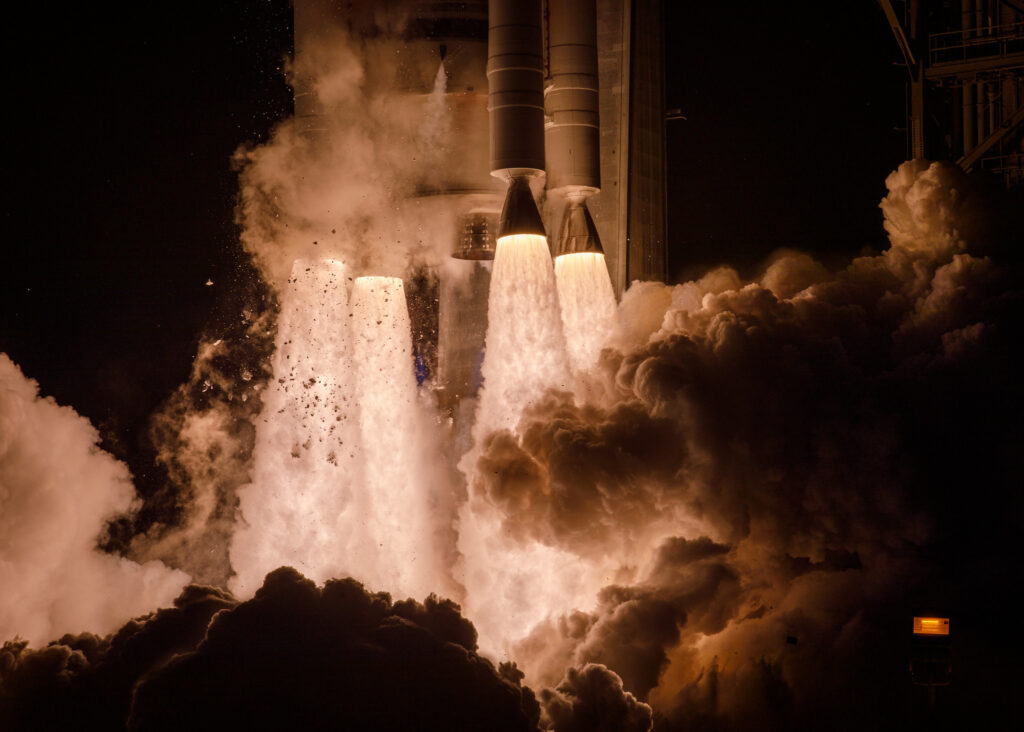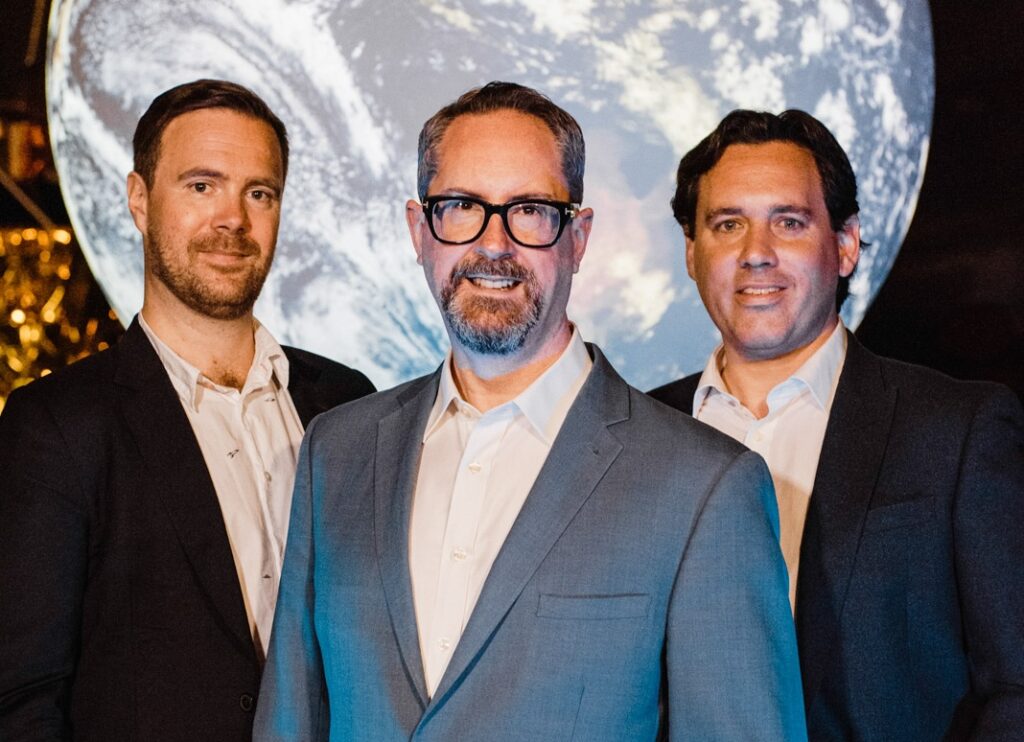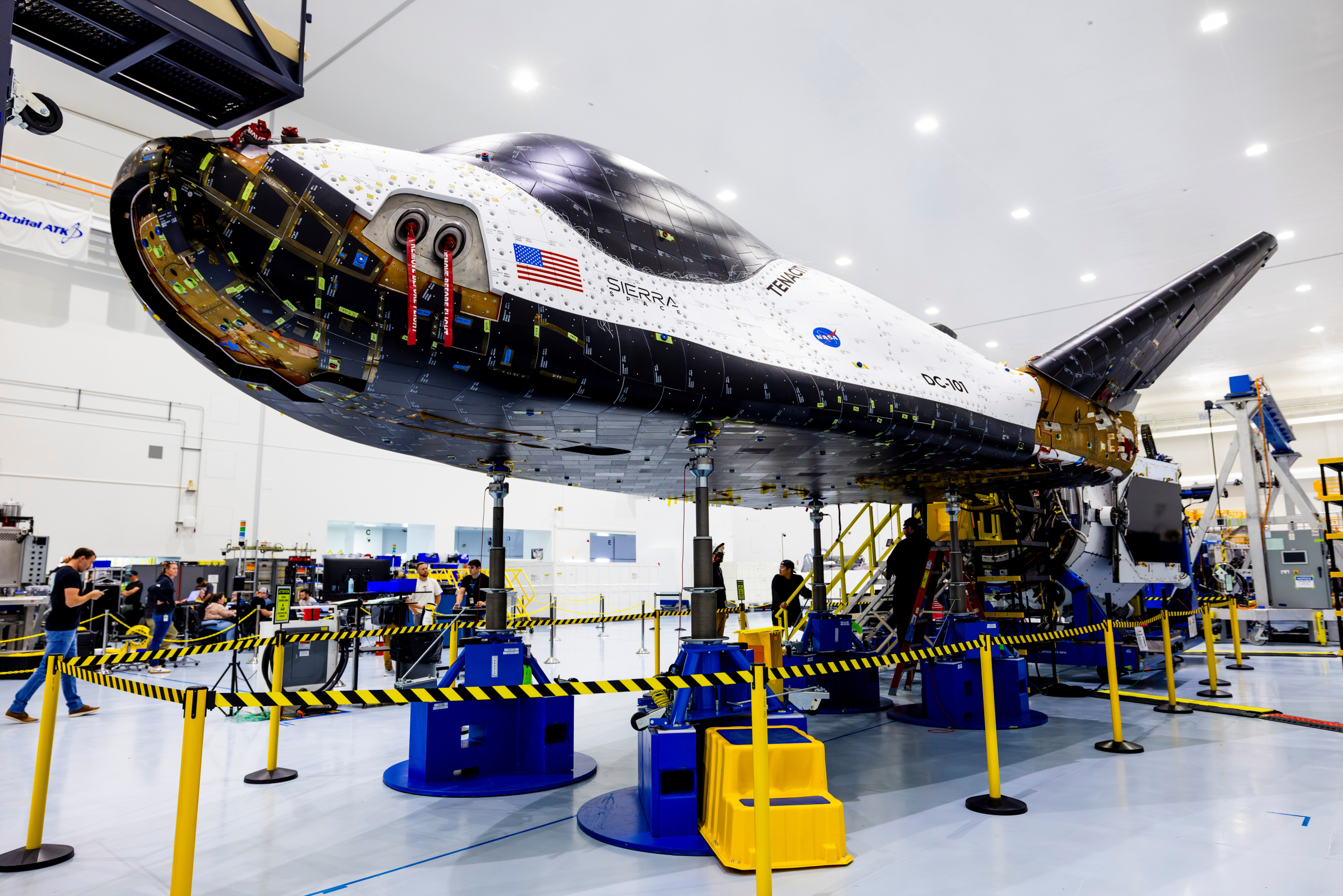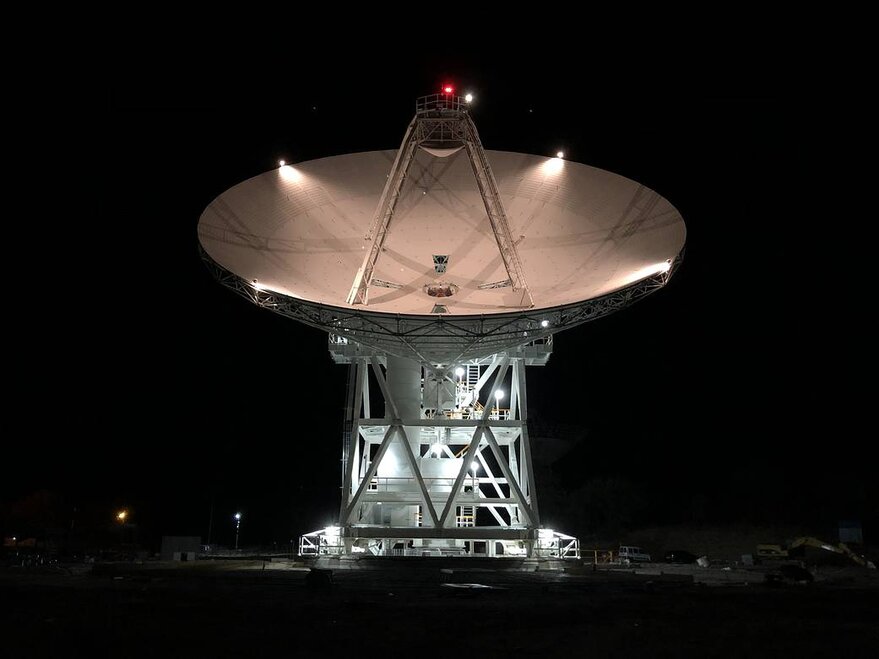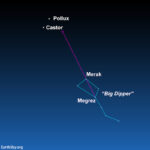Now Reading: SES expands launch contract with Relativity Space
-
01
SES expands launch contract with Relativity Space
SES expands launch contract with Relativity Space
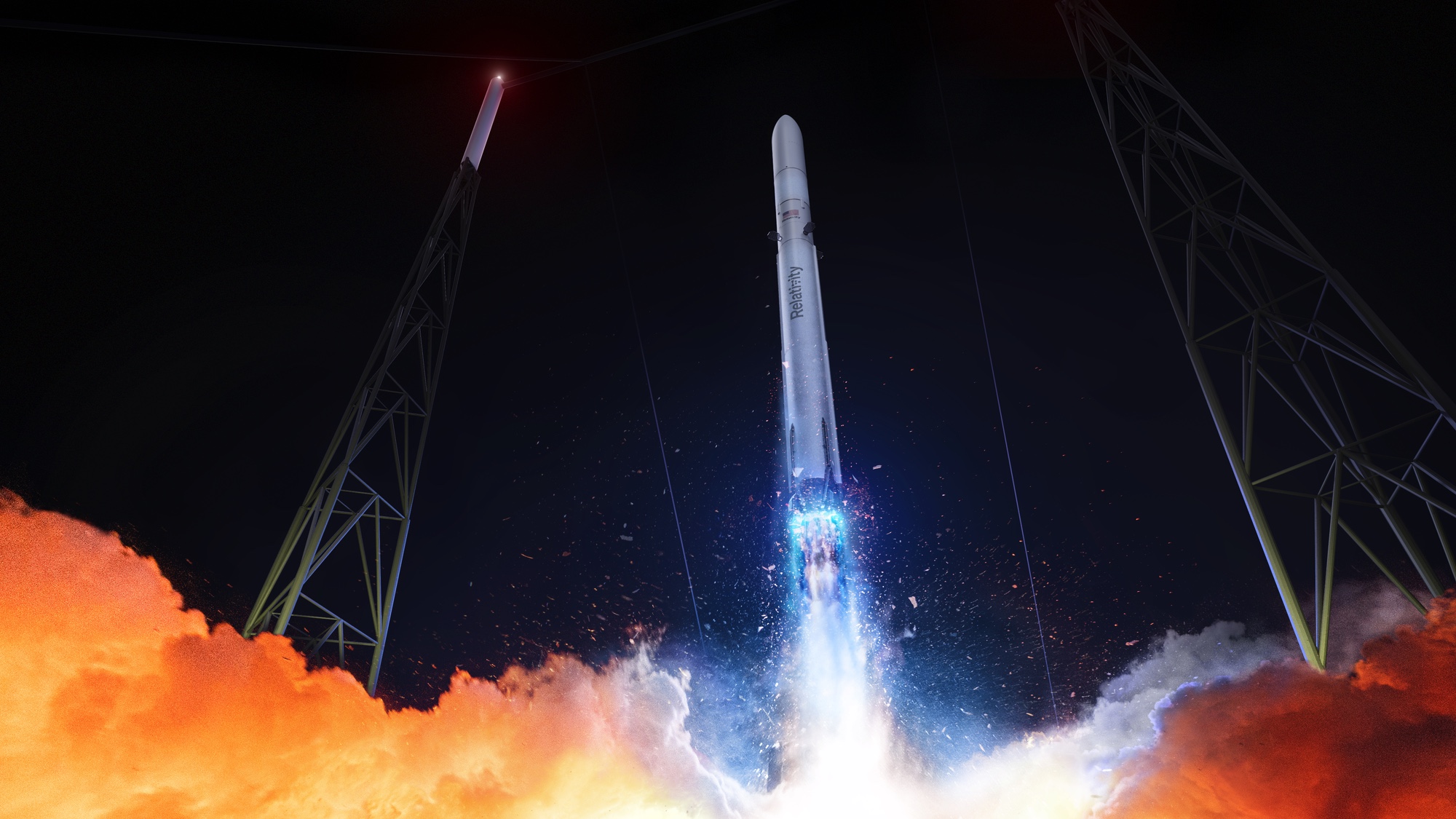

WASHINGTON — Relativity Space, a launch startup developing a reusable rocket, has expanded a contract to provide launches for satellite operator SES.
The two companies announced Nov. 12 an “extended multi-year, multi-launch” agreement involving Relativity’s Terran R rocket carrying SES satellites. The contract, they said, includes previously unannounced launches of SES spacecraft.
The companies did not disclose the number of launches, the timeframe for those missions or the value of the deal.
In 2023, Intelsat announced it had signed a contract with Relativity for multiple Terran R launches, which were expected to begin as soon as 2026. SES completed its acquisition of Intelsat in July.
The deal is the first business update from Relativity since billionaire Eric Schmidt became chief executive in March, a move that coincided with reports he had made a major investment in the company.
Relativity has continued providing technical updates on Terran R, a vehicle with a reusable first stage. It is designed to place 23,500 kilograms into low Earth orbit or 5,500 kilograms into a geostationary transfer orbit, with higher performance if the first stage is expended. The company is aiming for a first launch in late 2026 from Cape Canaveral.
Relativity originally stood out for its extensive use of 3D-printing technology to manufacture nearly all of its smaller Terran 1 rocket. After a single, unsuccessful Terran 1 test flight in 2023, the company pivoted to Terran R while adopting more traditional manufacturing techniques for many components.
The company is still pursuing 3D-printing technologies but has shifted focus. It recently announced the creation of Horizon Manufacturing Technologies, a new business unit that leverages Relativity’s additive manufacturing expertise for broader industrial applications.
“Horizon is pushing the boundaries of advanced manufacturing for aerospace and beyond, turning a bold technical foundation into a platform for reshaping industries,” the company stated on its website.
The company has also established what it calls the “Dark Matter Lab,” which it describes as a “high-autonomy innovation lab within Relativity Space, designed for rapid experimentation and deep-tech prototyping in pursuit of world-changing moonshots.”
Schmidt has said little publicly about his plans for Relativity since taking over as CEO. The press release announcing the SES contract offered few insights. “Broad access to orbit enables the breakthroughs that will shape our future. From global connectivity to scientific discovery, these launches with SES represent part of a larger effort to drive innovation and push the boundaries of the possible,” he said in the statement.
For SES, the expanded contract with Relativity Space is in line with a company approach that has seen it willing to work with new entrants. The company was an early customer of SpaceX’s Falcon 9 and the first to fly on a reused Falcon 9 booster.
More recently, SES signed a contract with Impulse Space in May to use its Helios transfer vehicle to move an SES satellite from low Earth orbit to geostationary orbit on a 2027 mission. Impulse said SES was its first commercial customer for Helios.
“SES is committed to working with an ecosystem of ‘new space’ innovators to evolve our network,” Adel Al-Saleh, SES chief executive, said in a statement. “Deepening our collaboration with Relativity Space and Terran R demonstrates that commitment — pairing reusable, medium- to heavy-lift capability with SES’s multi-orbit vision to deliver more capacity, more quickly and with greater resilience for years to come.”
Stay Informed With the Latest & Most Important News
Previous Post
Next Post
-
 01Two Black Holes Observed Circling Each Other for the First Time
01Two Black Holes Observed Circling Each Other for the First Time -
 02From Polymerization-Enabled Folding and Assembly to Chemical Evolution: Key Processes for Emergence of Functional Polymers in the Origin of Life
02From Polymerization-Enabled Folding and Assembly to Chemical Evolution: Key Processes for Emergence of Functional Polymers in the Origin of Life -
 03Astronomy 101: From the Sun and Moon to Wormholes and Warp Drive, Key Theories, Discoveries, and Facts about the Universe (The Adams 101 Series)
03Astronomy 101: From the Sun and Moon to Wormholes and Warp Drive, Key Theories, Discoveries, and Facts about the Universe (The Adams 101 Series) -
 04True Anomaly hires former York Space executive as chief operating officer
04True Anomaly hires former York Space executive as chief operating officer -
 05Φsat-2 begins science phase for AI Earth images
05Φsat-2 begins science phase for AI Earth images -
 06Hurricane forecasters are losing 3 key satellites ahead of peak storm season − a meteorologist explains why it matters
06Hurricane forecasters are losing 3 key satellites ahead of peak storm season − a meteorologist explains why it matters -
 07Binary star systems are complex astronomical objects − a new AI approach could pin down their properties quickly
07Binary star systems are complex astronomical objects − a new AI approach could pin down their properties quickly












